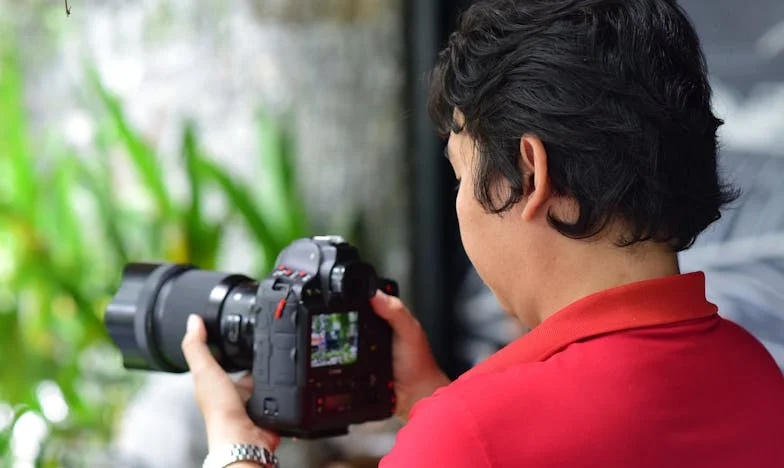When Illness Becomes Betrayal: The Day My Mother-in-Law Called Off My Wedding
“You betrayed my son, and I won’t let you ruin his life!”
The words echoed off the cold, beige hospital walls. I clutched the thin blanket tighter around my shoulders, trying not to let the tremor in my hands show. Linda, Adam’s mother, stood at the foot of my bed, her arms crossed and her jaw tight. Adam hovered in the doorway, torn between us, his eyes darting from his mother’s face to mine.
Just a week ago, I was picking out wedding dresses, wondering if our baby would inherit Adam’s green eyes or my stubborn chin. We’d rented a sunny little apartment in Chicago, filled it with thrift-store treasures and plans—picnics by the lake, movie nights, endless talk about our future. Our lives were unfolding just as I’d always dreamed, right up until the day I collapsed at work, right up until the doctors uttered words that would change everything: lupus.
Linda’s words stung more than the diagnosis itself. “It’s not what you think,” I managed, my voice raw. “The doctors explained—”
She cut me off. “Don’t lie to me, Emily. You don’t just get sick like this out of nowhere. Are you sure that baby is even Adam’s?”
Adam flinched, pain flickering across his face. “Mom, stop.”
But she pressed on. “You never told us you were sick. You hid it. What else are you hiding?”
I looked at Adam, silently begging him to defend me. He opened his mouth, then closed it again, his shoulders slumping. Shame and disbelief warred inside me. Was this really happening?
They left me alone that night, the hospital room silent but for the beeping monitors. I stared at the ceiling, tears streaming down my face, replaying every moment—every loving glance, every whispered promise—wondering how quickly love could turn to suspicion. I thought about our first date at Navy Pier, the way Adam had laughed when I’d spilled ketchup on my blouse. We’d been so sure, so happy. How could an illness—a stupid, unpredictable turn of fate—turn me into a villain in their eyes?
The next morning, Adam returned, eyes rimmed red. He sat at the edge of my bed, hands clasped, knuckles white.
“Emily, I… Mom’s not herself. She’s scared. We all are. Maybe we should postpone the wedding until you’re better?”
My heart lurched. “Adam, lupus doesn’t just go away. It’s something I’ll have the rest of my life. But I’m still me.”
He looked away. “But what if you get worse? What about the baby?”
I felt the walls closing in. “Are you saying you don’t want this anymore?”
He shook his head, tears slipping down his cheeks. “I don’t know. I just… I need time, Em.”
I remembered when we’d first found out I was pregnant. We’d danced in the kitchen, laughing and crying at the same time. We’d called our parents, told our closest friends. Linda had hugged me so tightly then, saying, “You’re family now.”
But now, family felt like a locked room with no key.
The days blurred together—doctor visits, blood tests, Adam’s texts growing shorter, more distant. Linda never visited again. My own parents, back in Ohio, offered to come stay, but I told them not to. I was embarrassed. How do you explain that your wedding was called off because your future mother-in-law thinks your illness is a sign of infidelity?
One night, Adam came by to pack up his things. Our apartment felt hollow, stripped of laughter and hope. He paused at the door, suitcase in hand.
“I’m sorry, Em. I just can’t fight everyone. It’s too much.”
I watched him go, my heart breaking all over again. I wanted to scream, to beg him to stay, but the words stuck in my throat. I thought about the life we’d planned—the baby’s first steps, Christmas mornings, growing old together. Was it all so fragile?
The weeks that followed were the hardest of my life. I lost the baby. The doctors said it was the stress, maybe the medication. I blamed myself, replaying every argument, every moment of doubt. I lay awake at night, haunted by Linda’s words. Was I really to blame? Or was I just unlucky?
Months passed. I started going to group therapy for people with chronic illnesses. There, I met others who’d lost loved ones, jobs, even homes to the invisible weight of disease. I heard stories of courage and heartbreak, of families torn apart and stitched back together in new, sometimes stronger patterns.
One afternoon, I stood in my tiny kitchen, sunlight streaming through the window, and realized I hadn’t thought about Adam in days. I was still here. I was still me. I picked up the phone and called my mom, letting her voice fill the room like a balm. I started writing about my experience, hoping that maybe, just maybe, someone else would feel less alone.
Sometimes, I see Adam’s posts on social media—pictures with new friends, new adventures. I wonder if he ever thinks of me, if he regrets walking away. But mostly, I wonder about Linda. Did she ever realize that illnesses don’t make us unworthy of love? Did she ever feel the sting of her own words?
Now, every time I feel the ache in my joints or see the scar where they drew blood, I remember how quickly life can change. I know I’ll never be the same. But maybe that’s okay. Maybe, in the end, surviving is enough.
Would you forgive someone who doubted you at your lowest? Or do some betrayals cut too deep to ever truly heal?
